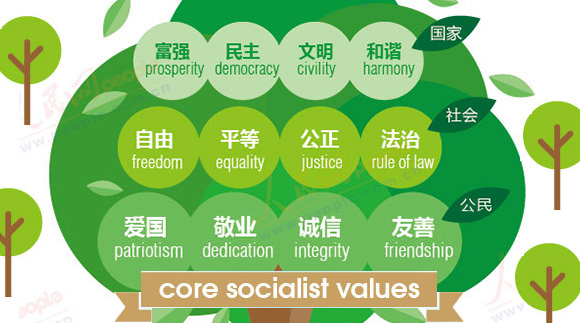China will have genuinely risen when its culture is accepted by the world as universal
Xu Jilin 许纪霖, Civilisational or Cultural Consciousness?New Culture Movement Centenary , 29 May 2015, Unirule Institute of Economics
A rising power representing a quarter of the world’s people, China faces a dilemma: it desires to list certain universal values on its international calling card, while steering its citizens’ hearts and minds to embrace a top-down, prescribed set of values. Campaigning to instil socialist values, PRC agencies are directing their attention to ‘suspicious’ and indeed ‘hostile’ ones.
Major powers staking claims on their values is nothing new. Theocracies have specialised in this since ancient times. Like racism, ‘valuism’ is attractive: a simple solution to current dilemmas. But like racism, ‘valuism’ fails to stand up to scrutiny, not least among China’s contemporary thinkers. Values, asserts Shanghai historian Xu Jilin, must survive being tested.
In a May 2015 address, Xu strikes a nerve questioning defenders of Japanese whaling, who argue, ‘whaling is our age-old cultural tradition’. In such cases, reasons Xu, tradition provides no defence unless it withstands testing against the values of universal civilisation, i.e. is seen as good by all. Failing this, the culture in question, ‘ours’ or not, must be rethought. ‘If China is really so good, it must survive being tested against the values of universal civilisation, and withstand questioning’.
the New Culture movement
A watershed event will be celebrated in September 2015: the centenary of the launch of New Youth (Xin Qingnian 新青年), under the editorship of Chen Duxiu 陈独秀 (1879-1942). Marking the onset of the New Culture Movement, it is regarded by many as ruling off traditional from modern China. Unlikely to be suppressed, its celebration in China this year could well be centred in Shanghai, treated as a semi-colonial figment and relegated to the art and culture pages. Chen and his young readership were rebels, set on kicking over the traces of two millennia of Confucianism.
For his generation, the undisputed status of the ancient pattern of moral ideas and behaviour had resulted in distortion, hypocrisy, and stagnation, leading to fatal weakness. It had blinded the rulers to danger, while reducing the population to passivity and subservience. Not only had the Manchu emperors succumbed to Western gunboats: the Republic that replaced it had done no better, giving ground to a rising Japan, while local elites descended into banditry and warlordism. Technological backwardness and military weakness were mere symptoms.
The root of the crisis lay in things normally invisible—deep-seated habits of thought and preference. The general term for these factors was ‘values’, a faddish word borrowed, like so many others, from Japanese (価値観 kachikan; in modern Chinese 价值观 jiazhiguan). Hu Shi 胡适 (1891-1963), a young scholar winning fame with New Youth (and the May Fourth Movement it helped generate several years later), defined his generation’s task as ‘the revaluation of values’, a term taken from the writings of Nietzsche, the German prophet of moral rebellion then in fashion in Russia, Japan and later in China.
the Party’s New Culture heritage
Chen Duxiu helped found the Chinese Communist Party in 1921. While he was to die an embittered political failure, the task of revaluing Chinese values was inherited by the CCP, above all by Mao Zedong 毛泽东 (1893-1976), whose Cultural Revolution brought it to unparalleled heights of megalomania and inhumanity. But the sense of something wrong, a bug in the national cultural software, persisted, moving from the Party centre back to college students, and with them to the streets in the 1989 democracy movement. To nip this threat to its legitimacy in the bud, the CCP began to downplay Mao’s (and Chen’s) crusade against ‘feudal backwardness’ and the Confucian values seen as its cause.
As economic reform under Deng Xiaoping 邓小平 began to yield growth and a spread of income levels, the sense of legitimacy or ‘rightness’ of the traditional culture was found to resonate with a restored self-confidence of the Party. Marxism had satisfied older generations, explaining China’s backwardness as a product of material shortage and class oppression. Thinkers and writers of all stripes emerging in the 80s and 90s now agreed that this materialism had led to cultural incoherence. ‘Cultural fever’ ruled in the years before and after June 4th 1989. Mao and Deng—deep-down loyalists of Chen Duxiu—were now gone, and Confucianism was in for a revival.
By the 2000s, it was possible to place Chinese in opposition to Western values, as if Chen had never existed. With the passage of time, his call for ‘smashing the Confucian shop’ meant less and less to the public. What, after all, was wrong with feudalism? Few were sure; perhaps it was part of what China had done right. Marxism would have supplied an answer, but huge efforts had gone into ‘sinifying’ it, rubbing off any identifying Western marks until it simply justified having a one-Party state. The institutions of imperial Confucianism—its examination system, its bureaucratic hierarchy, its cliques and heterodoxies—had long vanished; something was needed to play the role attributed to Christianity in the West, something conspicuously Chinese.
back to Confucian values
In 2010, Xu Jilin reflected on the atmosphere of the late 2000s.
There has been an upsurge of nationalism among Chinese people in the decade from the 1999 bombing of China’s embassy in Yugoslavia to the Olympic torch relay in 2008… Starting as anti-Western and anti-enlightenment, this hurricane has along with China’s rise gradually developed from cultural conservatism… finally focusing on a quest for a Chinese path...
With another event of 2008—the global financial crisis—seeming to confirm the superiority of a ‘China model’, the post-1989 generation, exposed to new forms of patriotic education, increasingly felt that a return to the supremacy of Chinese values was just a matter of time. Confucianism was a ready source of national identity, something to match the world religions—Christianity, Islam, Buddhism—that gave other major powers so much of their coherence and continuity.
For hyper-nationalists like the essayist Moluo 摩罗, who gained big audiences in the Hu-Xi transition years, Chen Duxiu’s New Culture movement was an anomaly, a mistaken collapse in self-confidence. In his best-selling China Stands Up (2010), Moluo finds that the quest for modernity had taken self-criticism too far. Western values were a problem, a threat, not a solution.
This reading of the situation was paralleled in CCP policies that increasingly used ‘Western’ as a derogatory term, now separated from modernisation as a goal of state. China’s native traditions of governance were, it seemed, intrinsically superior, rooted in higher values that could be turned back against alien standards employed by an inimical west to constrain China’s rise. These included doctrines of human rights, social contract, equality before the law, and many other ‘universal’ principles—despite China having long been signatory to many of them.
An instruction to college faculties to excise Western values from their curricula and textbooks caused concern in early 2015. Minister of Education Yuan Guiren 袁贵仁 threatened sanctions against these invisible body snatchers in the value sphere. To much official surprise and upset, the academies called his bluff. A legal scholar at Peking University, now as ever a bastion of New Culture thought, noted the elephant in the room: the Marxism—to which the CCP under Xi was as committed as its predecessors—was open to charges of expressing Western values. And did not the Constitution provide dire sanctions against any interference with the teaching of Marxism?
the quest for core values
What is currently settling out of this mix? Is a reborn Confucianism successfully bonding with the one-party state, to yield something like the bonding of Eastern Orthodoxy with the Czarist state in Russia, or the bonding of Islam with multi-ethnic modern Indonesia? The odds are against it. In early 2014, not long after Xi-Li’s watershed Third Plenum, the CCP’s ideological authorities brought down a set of ‘core socialist values’:
- prosperity, democracy, civilisation and harmony (value targets at national level)
- freedom, equality, justice, and the rule of law (value orientations at society level)
- patriotism, dedication, honesty and kindness (‘value guidelines’ at individual citizen level)
In the midst of stock exchange boom and bust, of tension in the South China Sea, it is easy to overlook this program. But make no mistake, it is a major policy initiative with the full weight of the propaganda system behind it. Endless ‘core values’ presentations are prominent in schools, TV programming and street displays everywhere. A typical camel-shaped committee product, the listed values strive to reconcile a wide range of policy agendas. ‘Prosperity’ is, in Chinese, literally ‘wealth and power’, and while a constant in national aspirations for generations, has its ambiguities and inner tensions. Chen Duxiu had no objection to wealth and power; the question was, what else had to be changed to achieve it.
freedom as a core value
Most interesting is the preservation of other values of the New Culture era. ‘Democracy’ is listed among the ‘state’ level values. This is no doubt democracy with Chinese characteristics—after all, the PRC Constitution of 1982 declares China to be a democracy, albeit not a liberal one. Still more intriguing is the listing of ‘freedom’ as a value at the level of social relations. The New Culture movement attack on Confucianism was not on the examination system, on ideals of harmony, hierarchy or meritocracy. It was above all on the Three Bonds and Five Constants that for centuries epitomised the core Confucian values.
The Five Constants refer to the virtues of humaneness, righteousness or justice, propriety, knowledge and integrity. Place individuals under fathers, husbands and rulers (who must exercise harmony and benevolence), the Three Bonds severely limit freedom (more technically, they place obligations in the position occupied by rights in Western thinking). The Five Constants lend themselves to reinterpretation and assimilation to modern concepts. Not so the Three Bonds, rooted in a vanished social order. The prospects of restoring these in anything like their original form in China today are not promising. Freedom as a ‘core socialist value’ takes on deeper meaning in this context.
an amalgam of past and present, of local and global
The impact of China’s changing place in the world on its internal settings plays a role in defining the core values. While some agencies increasingly scrutinise and counteract ‘foreign values’, others see a need to reduce perception gaps between language used in the PRC and in the international community, both developed and developing. The spread of liberal democratic constitutions in the developing world, with which China identifies and on occasion seeks to represent, plays a role.
The core values represent a need to repair damage done to social cohesion by the years of class struggle culminating in the Cultural Revolution. Buddhism in Thailand, Islam in Indonesia and Christianity in the Philippines all came from elsewhere, showing that values with binding force are not necessarily the outcome of a self-sufficient civilisation. All in all while the core socialist values are presented pictorially as if they were strictly continuous with a Confucian past, they are very clearly an amalgam of past and present, of local and global conceptual ingredients.
a civilisation of its own?
‘Values’ are shorthand for long chains of social and political causation. Unlike prices, values are rarely open to inspection. They may evolve in a single closed community, but easily overflow boundaries. They are for instance blind to national borders. China’s ‘valuists’, targeting ‘un-Chinese’ values flooding in from abroad, often neglect other causes of change—local evolution, hybridisation, generational conflict. Committee-defined lists of values, divorced from organic processes of community contention and consensus, may not achieve desired outcomes.
Any value that can be set up by public authority stands, as Hu Shi would have said, to be revalued. Public intellectual Zi Zhongyun 资中筠, for example, speaking on 30 May 2015 finds, ‘the government laying out huge sums to set up so-called ‘core values’ is totally absurd, spiritual things cannot be bought with money’. Zi, a former director of the Institute of American Studies at CASS, is, like Xu Jilin, committed to the New Culture heritage. She is, if anything, more convinced than Xu Jilin that the New Culture movement embodied, rather than negated, authentic Chinese values.
It was a time when Western and Chinese thought mutually reinforced each other, ‘when the best of foreign culture combined with traditional Chinese culture’. Li Keqiang 李克强 visiting UNESCO in Paris on 1 July 2015 reaffirmed support for ‘deepening cooperation between UNESCO and China through joint actions… convinced that these are favourable to mutual respect among different civilisations…’. China, he implies, is a civilisation all of its own. This seems highly relativistic, at odds with Xu Jilin’s appeal to a ‘universal civilisation’.
But if Li were asked ‘what makes a world civilisation like China’s recognisably a civilisation (distinct from and superior in values to, say, the Islamic State)?’, he would most likely turn to something akin to Xu Jilin’s frame of reference. Xu believes, ‘China will have genuinely risen when its culture is accepted by the world as universal’. This culture, he told the Unirule audience:
is above all a civilisation, whose mode of self-justification has always been universal, rather than of national particularity. So if you say China has so many things that are good, can you demonstrate that they are good when placed in a global context? This is what [China] must demonstrate.
learning the hard way
In previous rounds of this century-old debate, anti-Westerners have responded, ‘why should Chinese culture have to demonstrate anything, justify anything? It’s the West whose values led to imperialism, colonialism and World Wars. Let them justify that! And who are they to point to bugs in our cultural software—what about theirs?’ Few software packages are free of bugs. It is a token of modernity, in fact, to acknowledge that all software, cultural software included, goes through endlessly reiterated debugging.
The West cannot claim to have superior values. It can claim to have learned the hard way how dangerous it is to imagine that it did. The lesson is there for everyone to learn; Chinese people started learning it—from their own sources, and from their boldest and most patriotic thinkers—a century ago.
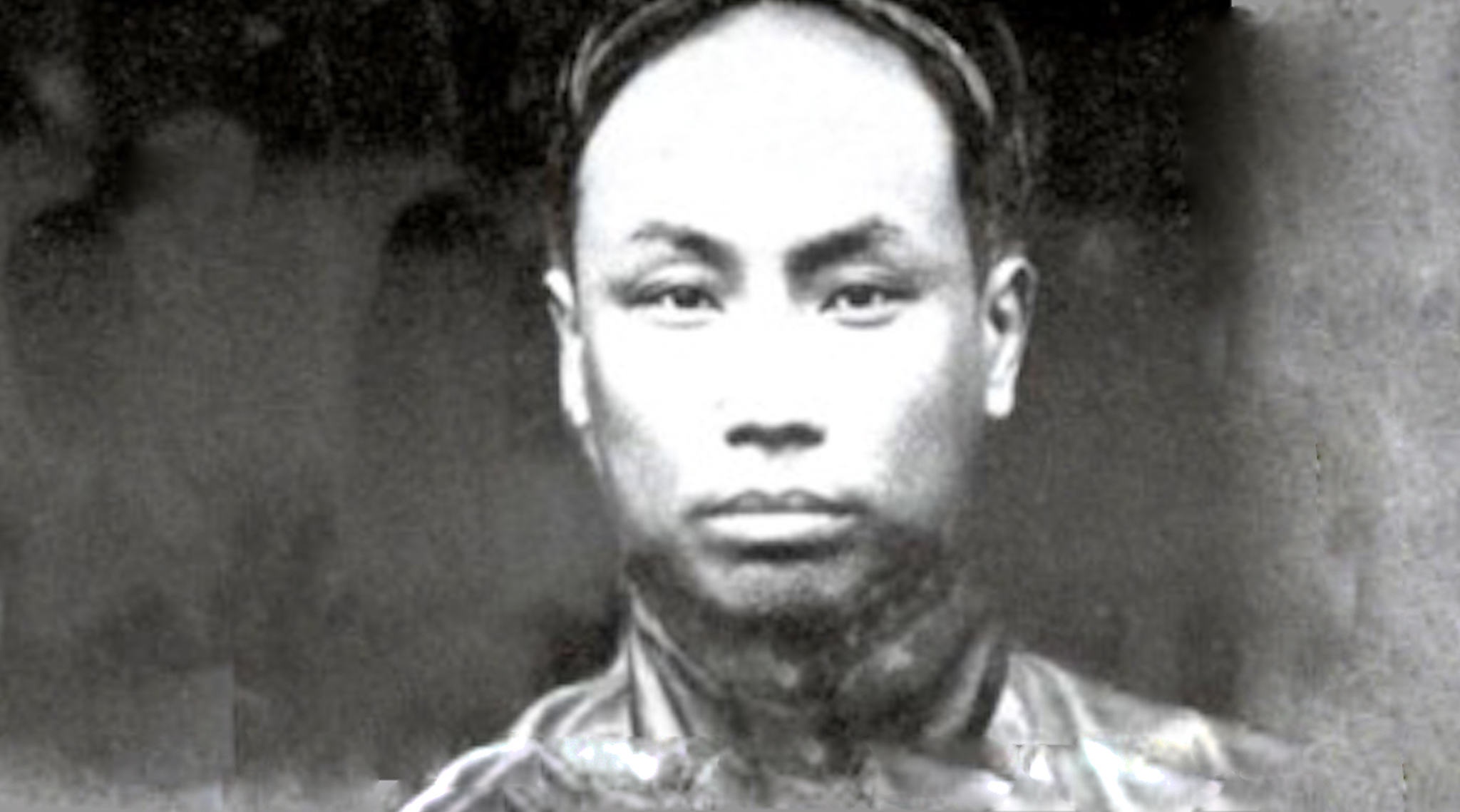
Chen Duxiu 陈独秀 | 1879-1942
Liberal intellectual-turned-revolutionary socialist, first General Secretary of CCP (1921-27) Expelled from Party 1929
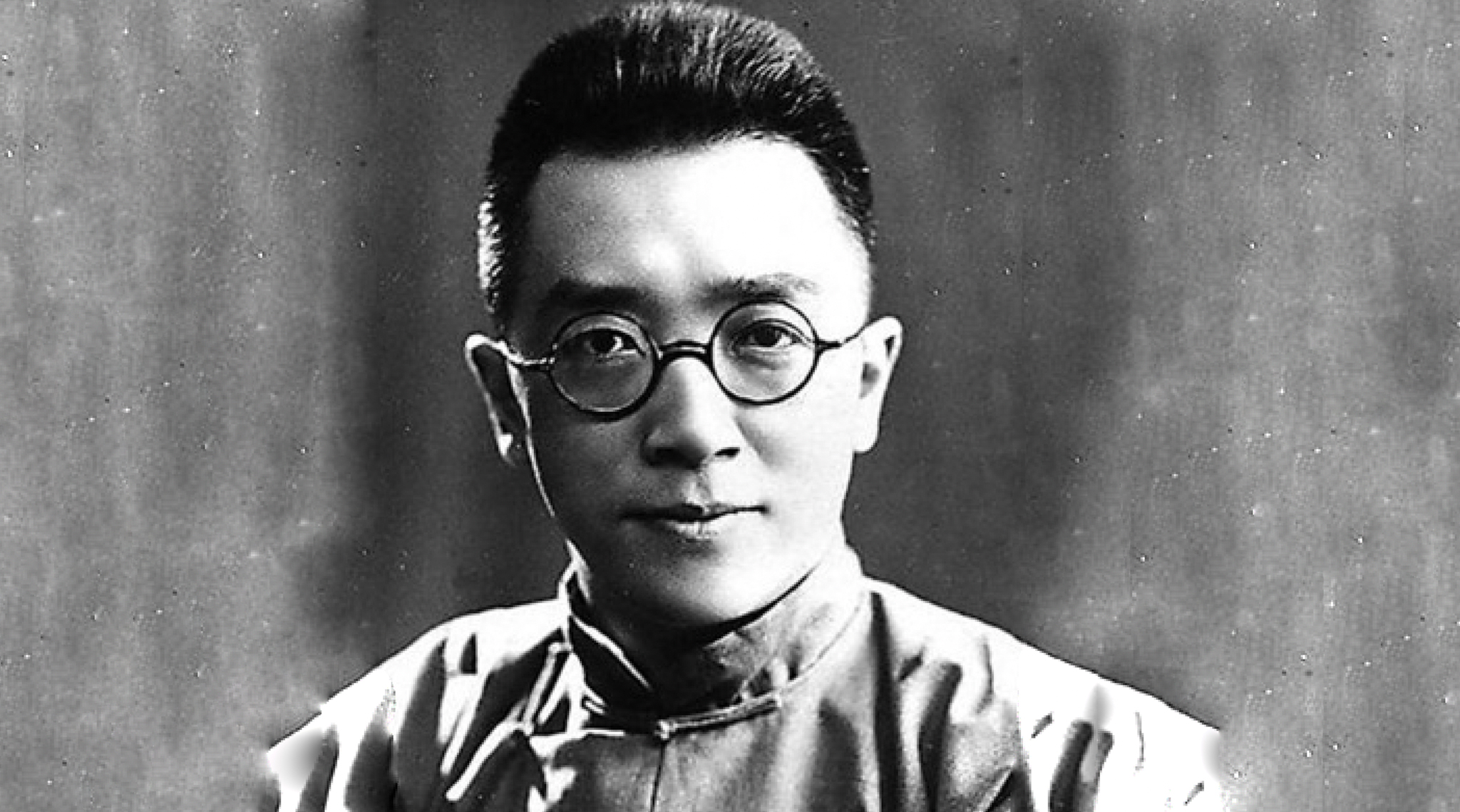
Hu Shi 胡适 | 1891-1963
Liberal scholar, leader of May Fourth revaluation of tradition
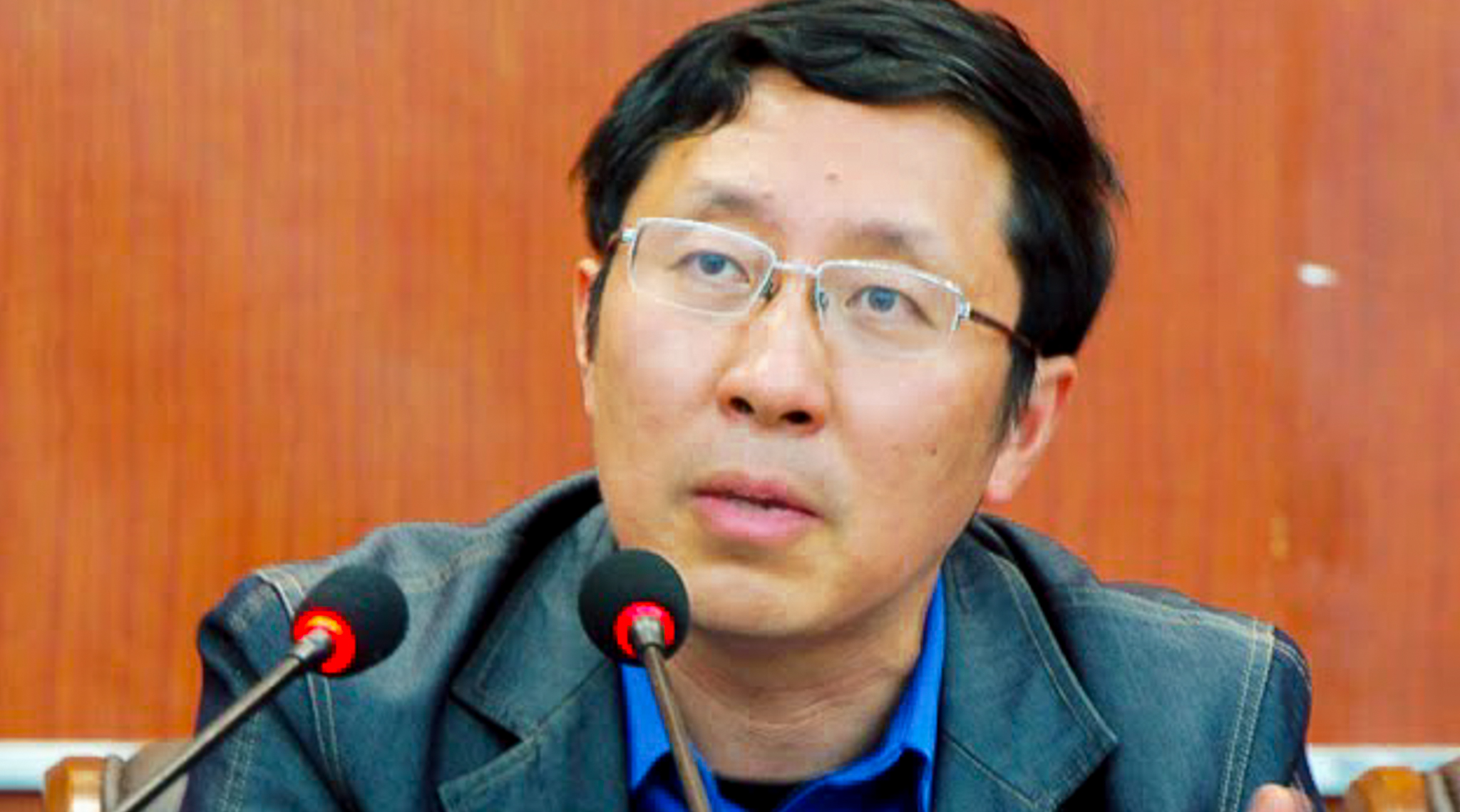
Xu Jilin 许纪霖 | Shanghai’s East China Normal University history professor
Xu Jilin carries on the tradition of cultural criticism associated with the New Culture Movement. His many publications document the tensions attending China’s search for a place in the modern world
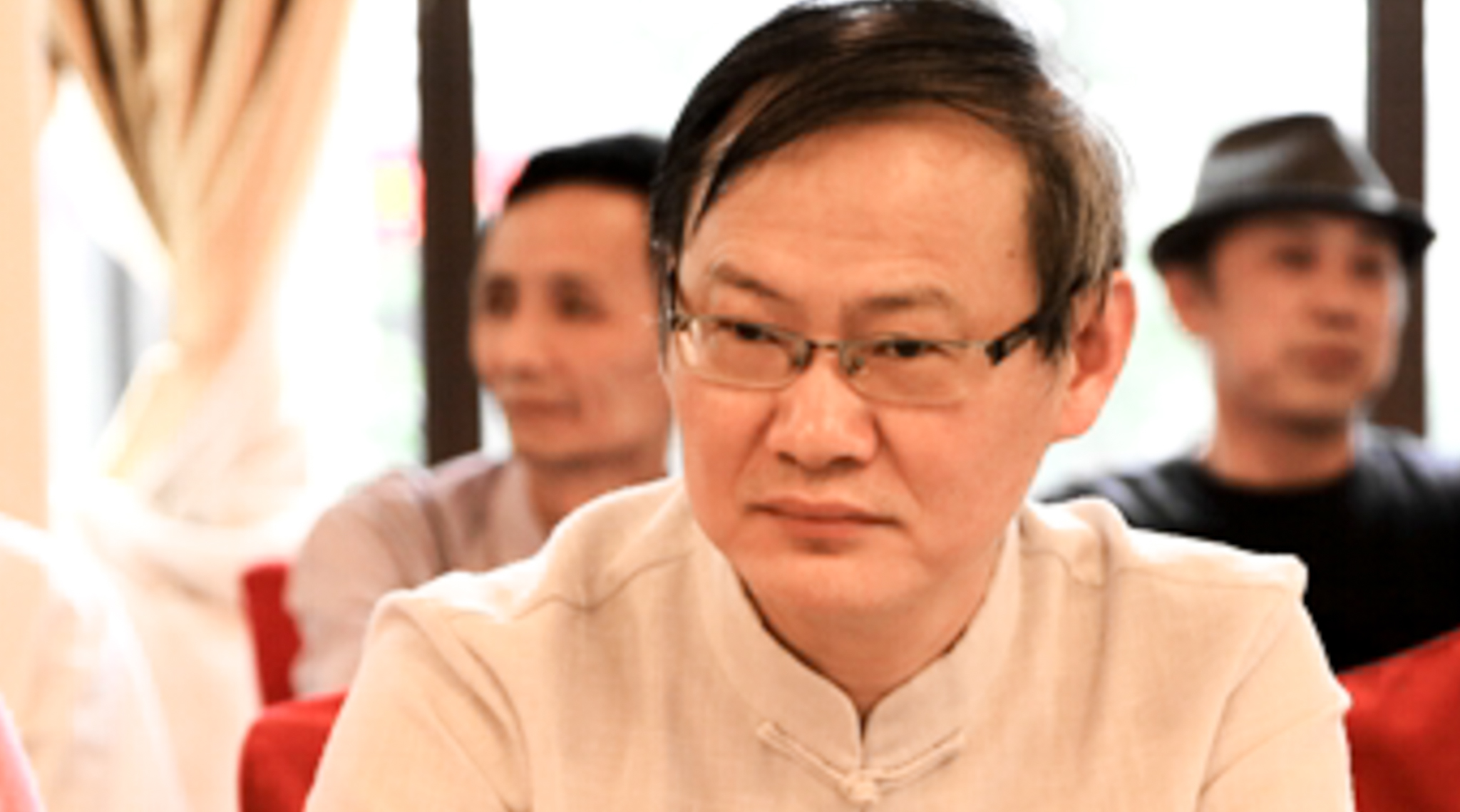
Moluo 摩罗 | Chinese Culture Research Institute Chinese Art Academy
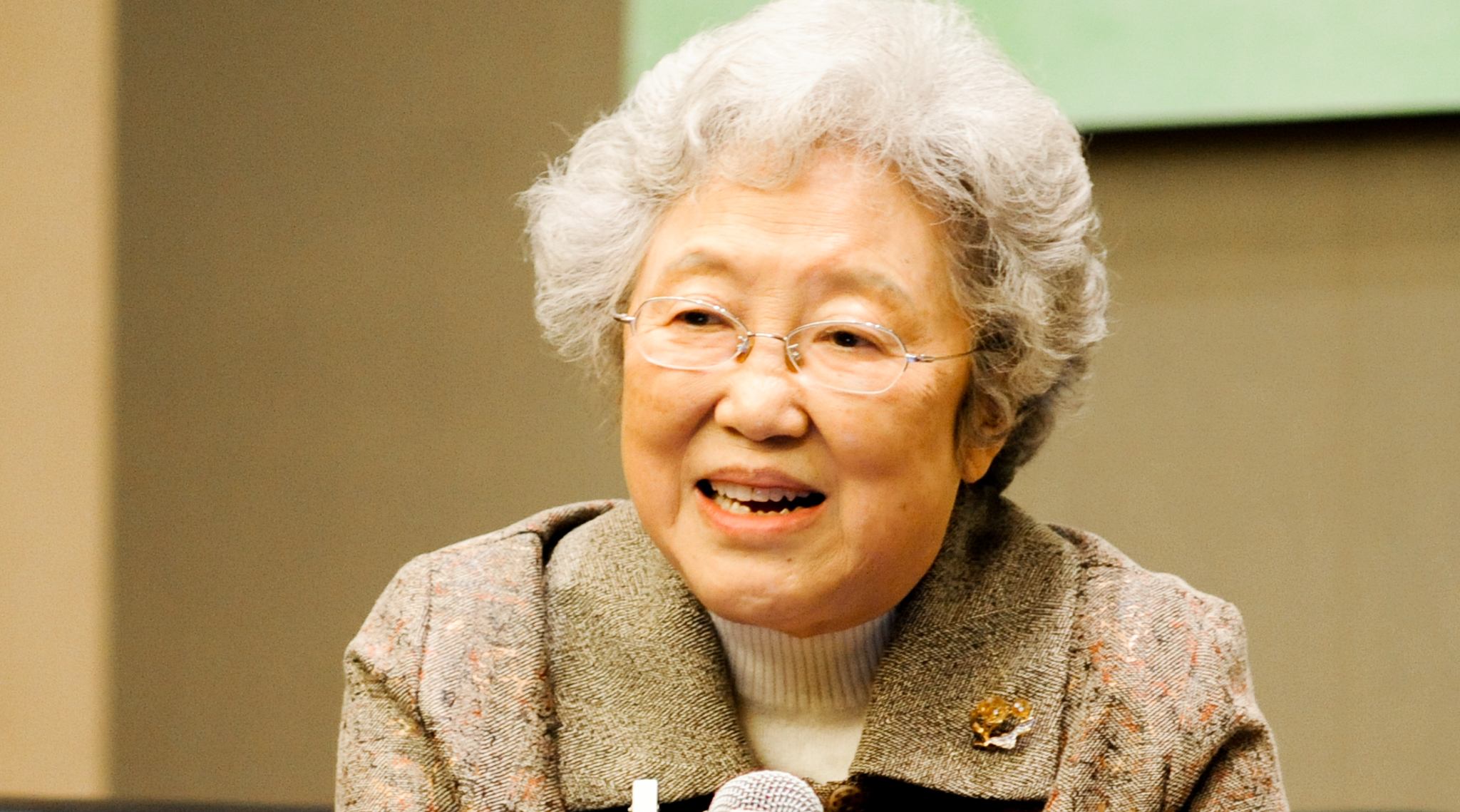
Zi Zhongyun 资中筠 | CASS Institute of American Studies former director
Trained in Western languages (once an interpreter for Mao and others) and social sciences, Zi in later years has become an outspoken public intellectual defending China’s modern heritage
Copyright © 2015 China Policy, All rights reserved.
